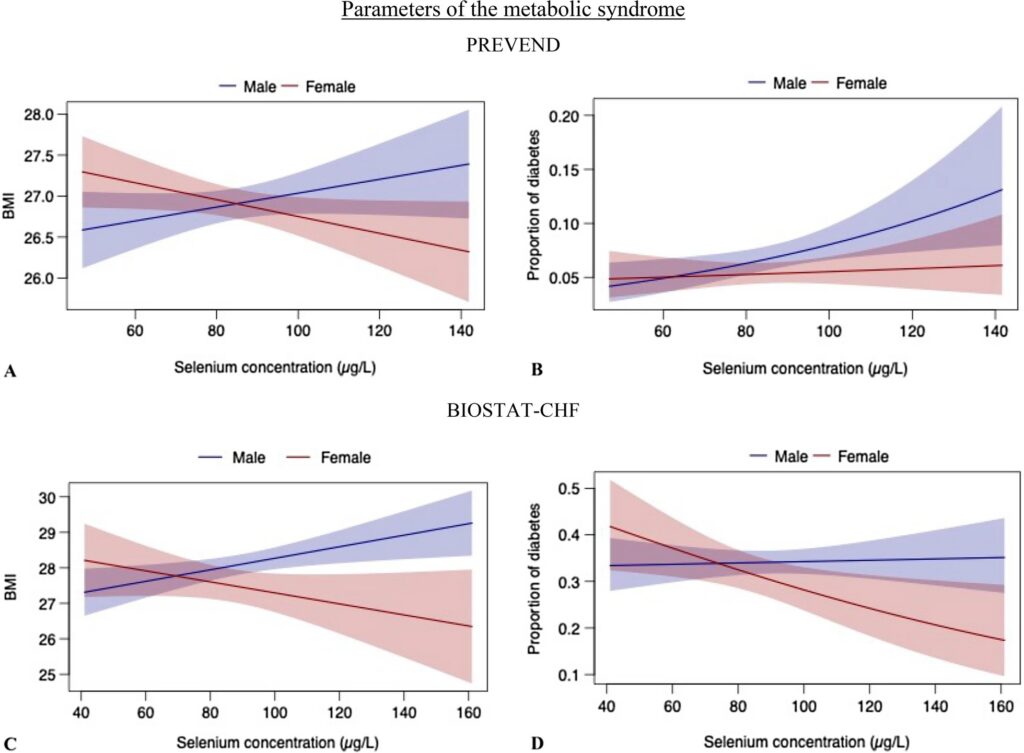Publication: Sexual dimorphism in selenium deficiency is associated with metabolic syndrome and prevalence of heart disease
Differences between men and women in their selenium status are associated with variables related to metabolic syndrome and prevalence of heart disease. This was the main conclusion of the observations reported by Eerde Weening and colleagues and published in Cardiovascular Diabetology.
Selenium is an essential micronutrient for optimal cardiovascular function. Deficiency has been associated with a higher incidence of heart failure and is known to play a role in the metabolic syndrome. Moreover, differences between males and females in health outcomes do exist, including differences in cardiovascular morbidity and mortality, which may be (partly) explained by malnutrition of micronutrients, specifically selenium.
The authors investigated whether the association between low selenium with heart disease and metabolic syndrome differed between both sexes in two different cohorts: in relatively healthy individuals (PREVEND, n=4288) and patients with HF (BIOSTAT-CHF, n=1994).
The authors observed that women with lower selenium associated with a higher BMI and higher prevalence of diabetes, while almost opposite associations were true for men. Moreover, with lower selenium levels, increased prevalence of MI was seen in women. Furthermore, in the cohort of patients with worsening HF, women with lower selenium presented with a higher systolic blood pressure, higher prevalence of hypertension and a higher left ventricular ejection fraction. The effect of selenium on these parameters was less apparent in men.
These findings highlight the potential relevance of low serum selenium on markers of the metabolic syndrome and heart disease, showing sex-specific phenotypic resemblance between both cohorts. Sex differences in (mal)nutrition, micronutrient physiology and/or selenoprotein biology may explain these differences, especially as several experimental studies support this hypothesis. but interventional trials are needed to validate the observed findings.
To read the full open-access article, please click here!
